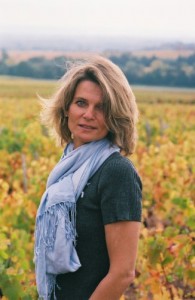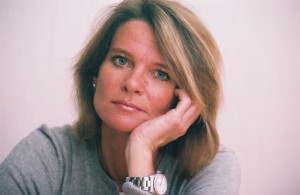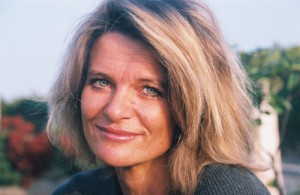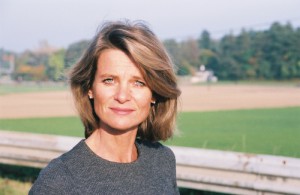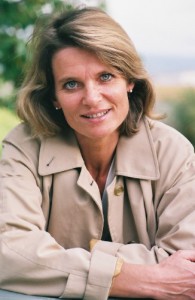
Caroline de Gruyter is a journalist and lecturer based in Brussels. She is a European Affairs correspondent and columnist for the leading Dutch newspaper NRC Handelsblad and a regular contributor to Foreign Policy, EUobserver and De Standaard. She spent more than twenty years covering Europe, from different corners of the continent.
articles
In Dutch
- Hoe de lidstaten met Europa omgaan, NRC, 23.9.2023
- ‘Nergens leef je beter dan in Europa’, interview Jacques Attali, NRC, 22.8.2023
- 'De samenleving is minder gepolariseerd dan mensen denken', interview Steffen Mau, NRC, 19.9.2022
- Deze oorlog is een keerpunt voor Europa, NRC, 4.3.2022
- De enige manier om Poetin te stoppen, NRC, 24.2.2022
- Zo naief was de EU niet bij de inkoop van vaccins, essay NRC, 16.4.2021
- Waarom kleine landen steun moeten zoeken, interview Baldur Thorhallsson, NRC, 19.6.2019
- ´De EU is een machtsfactor geworden´, interview Alexander Clarkson, NRC, 1.5.2019
- Misschien is het maar beter dat de Britten gaan, NRC, 8.3.2019
- 'Verbazend hoe snel sommigen hun geloof in de democratie verliezen', interview Frédéric Worms, NRC, 4.1.2019
- 'Heel Europa wil zakendoen met Nederland', interview Josef Janning, NRC, 12.3.2018
- De privatisering van alles, column NRC, 2.3.2018
- 'We willen nieuwe energie in Europa brengen', NRC, 20.2.2018
- 'Populisten denken dat alleen zij het volk zijn', interview Jan-Werner Muller, NRC, 11.11.2016
- Zo versloeg Flavia de Zwitserse populisten, interview Flavia Kleiner, NRC, 14.6.2016
- Wat is er mis met Europa, en wat doen we eraan? essay NRC, 13.2.2016
- Hoe het linkse verhaal verdwenen is, essay NRC, 11.5.2015
- Over God of je identiteit hoef je geen compromis te sluiten, interview Ivan Krastev, NRC, 5.4.2014
In other languages
- Ursula von der Leyen is Europe’s ruthlessly efficient machine, Foreign Policy, 21.9.2023
- Europe’s losers have become its winners again, Foreign Policy, 25.5.2023
- Why it’s harder than ever to chase autocrats from power, EUobserver, 13.12.2022
- l’Europe que les Habsbourg et l’Union ont en partage, le Grand Continent, 30.6.2022
- Britain and Russia are enemies in Ukraine – but both want to disrupt Europe, The Guardian, 21.6.2022
- Europe Is in Danger. It Always Is, The New York Times, 2.5.2022
- Putin’s War is a Watershed Moment for the EU, The Guardian, 3.3.2022
- This is Europe's Vaccine Rollout, Foreign Policy, 29.3.2021
- What Europe can learn from the Habsburgs, The New European, 24.3.2021
- l'Europe s'est dotée de frontières, Le Grand Continent, 2.1.2021
- Europe Doesn't Want Lockdowns. It Wants Government, Foreign Policy, 6.11.2020
- The Dutch Don't Love Europe - and Never Did, Foreign Policy, 16.9.2020
- Habsburg lessons for Europe's foreign policy, EUobserver, 9.10.2019
- Bewitched by Brexit: Referendums and Modern Democracy, ECFR, 3.9.2019
- De grâce, qu’on enterre cette idée de conférence défendue par M. Macron! Le Monde, 15.7.2019
- Europeans used to ignore their Parliament. Not any longer, The Guardian, 29.5.2019
- Vice Prime Minister, only for Europe, Friends of Europe, 7.5.2019
- Perhaps they'd better go, NRC Handelsblad, 14.3.2019
- The omnipotent dollar: US sanctions and the euro problem, ECFR, 22.5.2018
- Stopping Migration is Impossible; Managing it is Smarter, ECFR, 9.9.2016
- Luxembourg, Europe's Bellwether, Carnegie Europe, 26.1.2016
- The Switzerland Fantasy, Carnegie Europe, 18.6.2015
- Austrian Acrobatics in Europe, Carnegie Europe, 5.11.2014
- The Dutch are Trapped in Europe, Carnegie Europe, 25.4.2013
- Wo Globalisierung und Dorftradition sich treffen, Neue Zürcher Zeitung, 27.4.2013
books
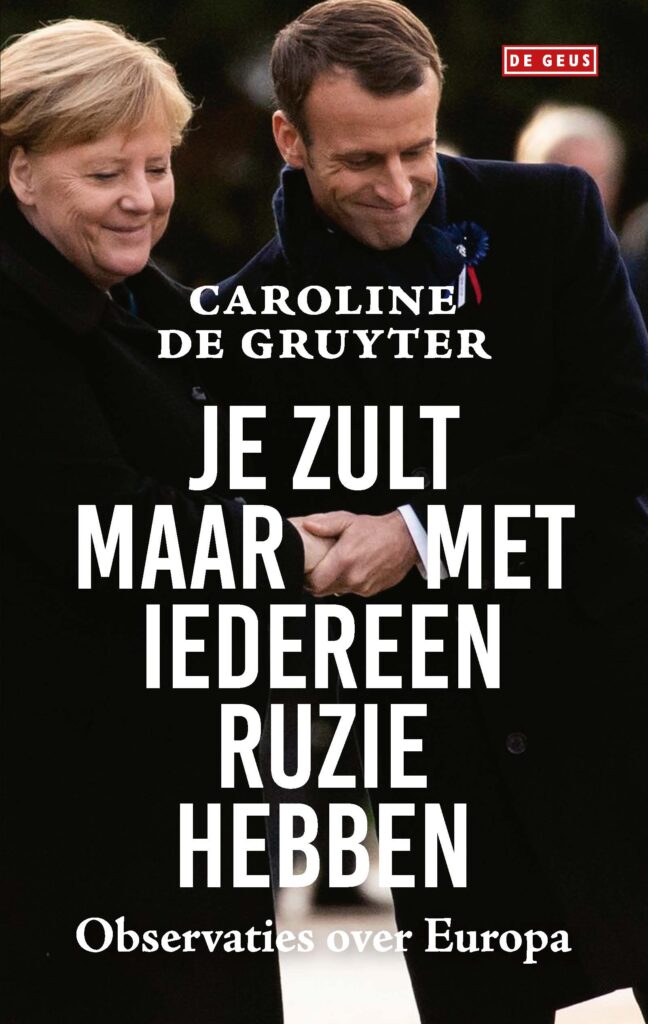
Je zult maar met iedereen ruzie hebben; Observaties over Europa
Uitgeverij De Geus, June 2022
The world has changed dramatically in recent years, and Europe has changed with it. This book, a selection of columns in NRC from January 2017 to the first weeks of war in Ukraine in March 2022, captures that change. Using current events, drawing on history and literature, Caroline de Gruyter writes lucidly and passionately about Europe muddling through. While some say Europe is too powerful and others that it is weak and divided, her focus is on Europe’s constant transformations instead. Thanks to her in-depth analyses, we get to know Europe better step by step.
Book and e-book available here
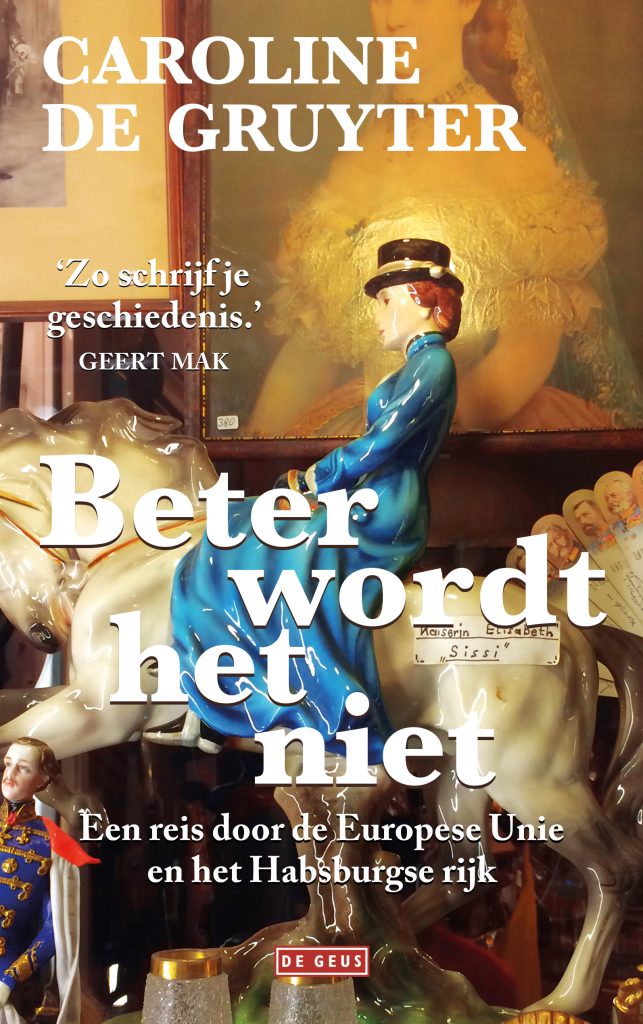
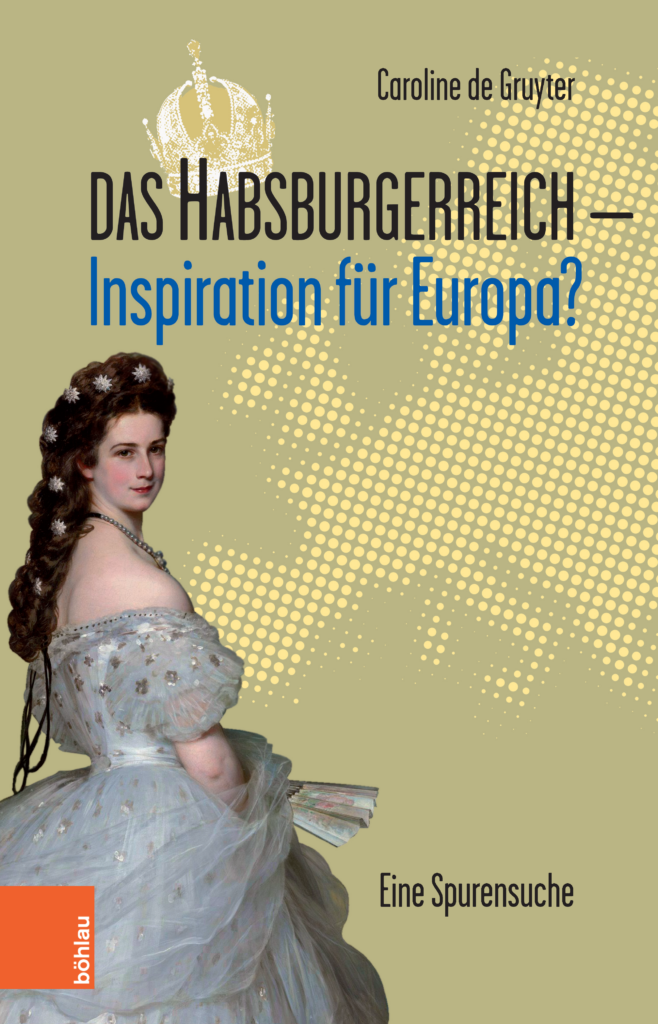
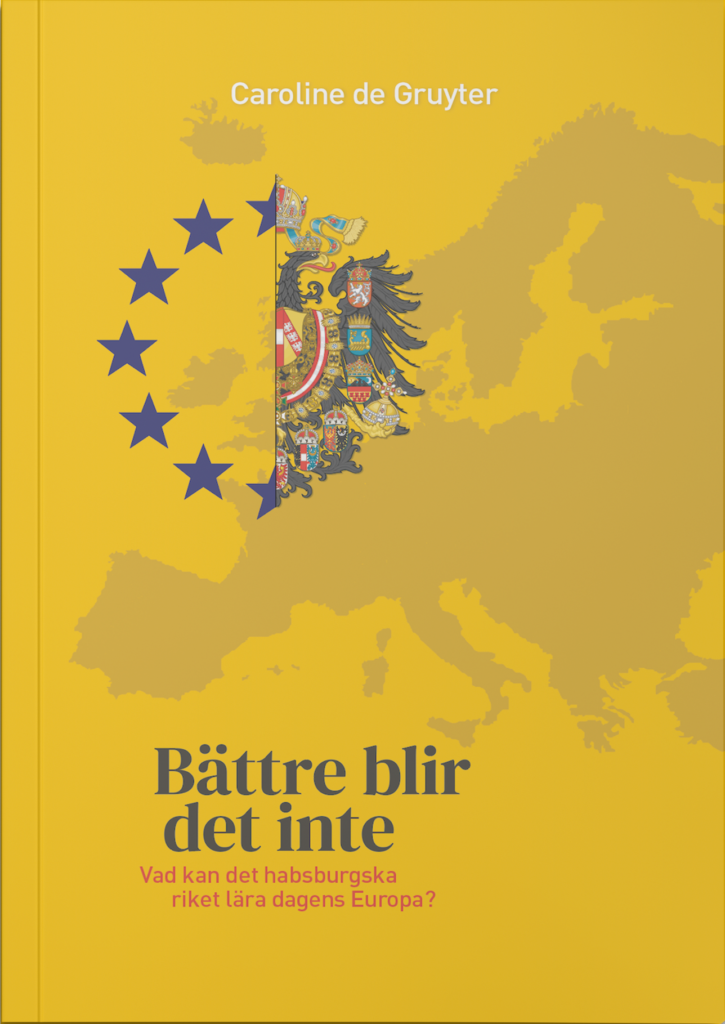
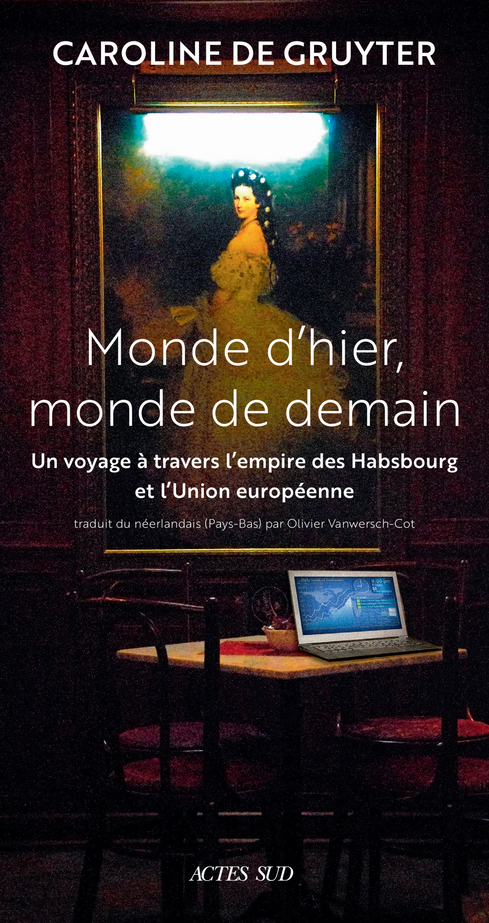
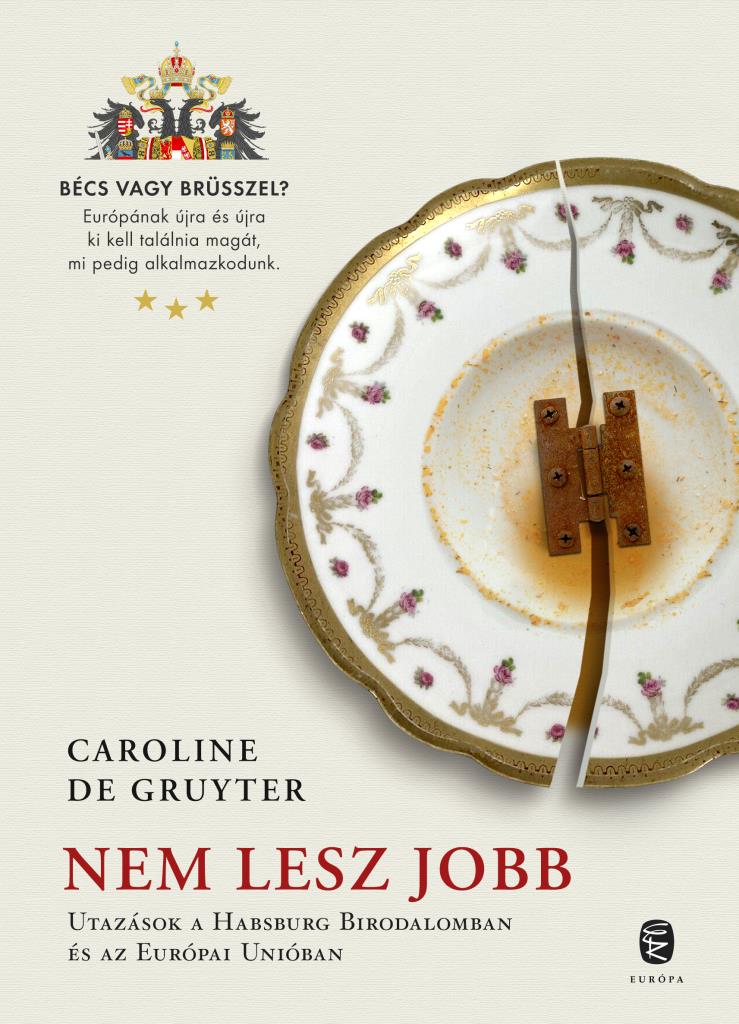
Beter wordt het niet; een reis door de Europese Unie en het Habsburgse Rijk
Uitgeverij De Geus, March 2021
Europeans often complain that the EU is divided, slow and weak. Believe it or not, the Habsburg Empire was the same. Playing for time, avoiding conflict, working on never-ending reforms and finding ugly compromises were key characteristics of Habsburg governance. By kicking the can down the road – fortwursteln – successive emperors managed to keep many nations, language groups and cultures safe and sound under one roof for about six hundred years. What are the Habsburg lessons for today’s Europe? Could Europe’s weaknesses actually be its strength? And should we finally accept the EU as it is: a benign empire of sorts, in permanent change, unfinished per definition?
Book and e-book (Dutch) available here
Book and e-book (German) available here
Book and e-book (Swedish) available here
Book and e-book (French) available here
Book (Hungarian) available here
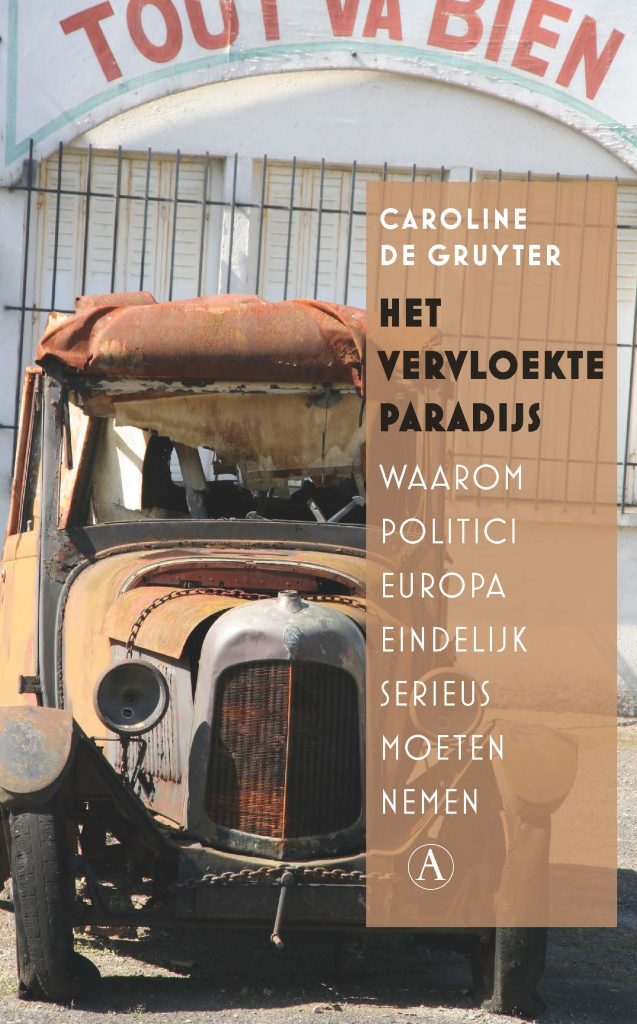
Het vervloekte paradijs; waarom politici Europa eindelijk eens serieus moeten nemen
Uitgeverij Athenaeum, november 2016
Prize-winning journalist Caroline de Gruyter is one of the few Dutch journalists writing a weekly column about European affairs, in NRC Handelsblad. Sharp, timeless and unsentimental, they are always full of inside information – sometimes from the Brussels ‘bubble’, often from other corners of Europe. Here is a selection of her best columns from 2014-2016, on globalization, democracy, Brexit and the continuing importance of Franco-German cooperation. “In the 1950s we decided to stop shooting with live ammunition, and start shooting with words instead. It’s never perfect, it’s often messy – but it works.”
Book and e-book available here
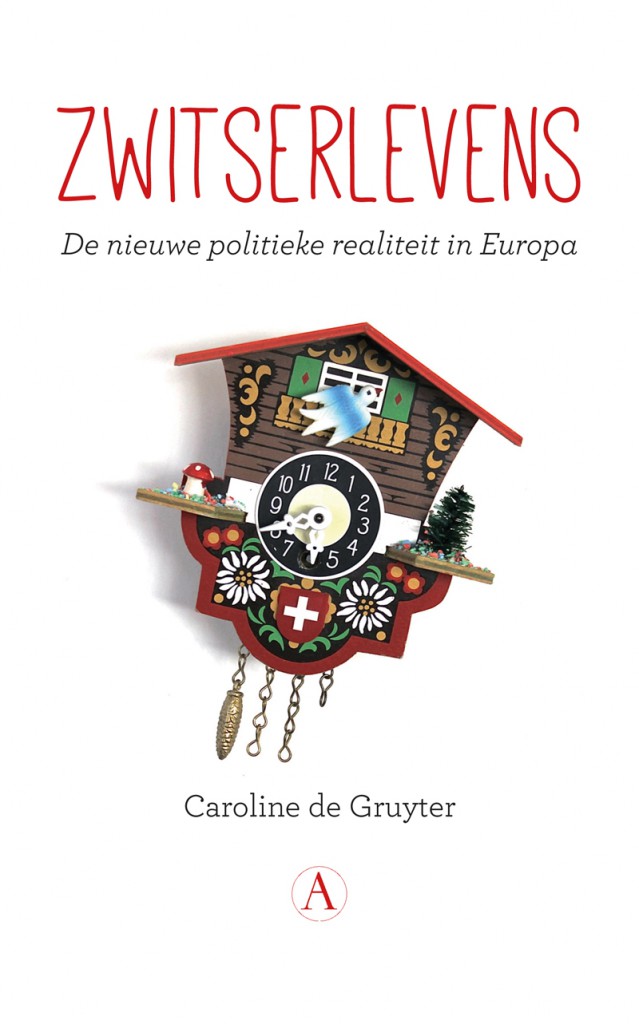
Zwitserlevens; de nieuwe politieke realiteit in Europa
Uitgeverij Athenaeum, may 2015
A detailed, personal account of the clash between globalisation and democracy in a tiny Swiss village between 2004 and 2008. Why was the turnout for elections so low? What made those who still bothered to vote, embrace the extreme right in such numbers? And what does this tell us about similar things happening nowadays in many countries of the European Union?
E-book available here

De Europeanen; leven en werken in de hoofdstad van Europa
Uitgeverij De Bezige Bij, 2006
Containing 28 interviews with Europeans living in Brussels - lobbyists, European officials, children at the European school, etc – the book draws a multi-layered portrait of life in the proverbial ‘euro bubble’. It can be read as an accessible, personal introduction to Europe, but it also explores the complex dilemma of European identity.

Het koffiehuis van Mohammed Skaik en andere taferelen uit speelgoedstaatje Gaza
Uitgeverij Bert Bakker, 1997
This book, which has only been published in Dutch, describes the first years of Palestinian autonomy in the Gaza Strip (1994-1997). Using concrete, moving and sometimes even hilarious concrete examples from daily life, it shows how the Gazans obtained the symbols of statehood – an airport, a flag, passports even – but not the content of sovereignty.
talks
Speeches/Interviews
- Rencontre avec Caroline de Gruyter, librairie Tropismes, Brussels, 4.4.2023
- What’s Habsburg got to do with it?, Bruno Kreisky Forum, Vienna, 6.12.2022
- Nooit meer slapen, interview NPO radio Hilversum, 20.12.2022
- So Close, Yet So Far Away, Breaking Britain Podcast, 11.12.2021
- Habsburg Lessons for today’s Europe, E-International Relations, 11.11.2021
- ´Nooit meer oorlog´ is relevanter dan ooit, 4 May Lecture, Utrecht University, 4.5.2019
- How the EU will rebalance its powers after Brexit, Kreisky Forum, Vienna, 19.3.2019
- De Grote Europashow in Paradiso, De Kiesmannen, Amsterdam, 11.2.2019
- Small EU countries after Brexit, Irish Ministery of Foreign Affairs, Dublin, 18.10.2018
- The EU after Brexit, Norwegian Institute for International Affairs, Oslo, 19.4.2018
- European security and tectonic plates moving, Helsinki Comité Nederland, The Hague, 14.3.2018
- How Europe got its future back, keynote European Studies, Maastricht University, 10.6.2017
- Get off the couch, and re-start the European engine, 7th Bronislaw Geremek Lecture, Utrecht, 14.2.2017
- Ben je voor of tegen Europa? Wat een absurde vraag, speech Prix du Mérite Européen, The Hague, 2.6.2016
- Deep throat zit niet op Twitter, acceptance speech Anne Vondeling Prize, The Hague, 26.6.2013
Seminars/Debates
- ‘Europa, new horizons’, Europe Summit, Salzburg, 25.9.2023
- Habsburg lessons for today’s Europe, Munich University, 22.11.2022
- En Europe, la souverainité et l’identité, French Embassy The Hague, 11.1.2022
- The European Interest(s), GMF, Brussels, 16.11.2021
- Geopolitical Challenges, ICMPD Migration Conference, Vienna, 19.10.2021
- Conference on the Future of Europe; citizen’s engagement, Bruegel, Brussels, 3.9.2021
- Fireside chat on Brexit, Clingendael Institute The Hague, 9.12.2020
- The Netherlands-Denmark, frugal friends in the EU? Thinktank Europa, Copenhagen, 28.10.2020
- De EU als het Habsburgse Rijk van onze tijd, podcast Betrouwbare Bronnen, 12.12.2019
- Bewitched by Brexit; referendums and modern democracy, ECFR, Paris, 1.10.2019
- Norden annual diplomatic seminar, Nordic Association Sweden, Biskops Arno, 14.6.2019
- Ireland and the EU, panel discussion European Movement Ireland, Dublin, 2 May 2019
- Why History Matters, Habsburg Lessons for the EU, Diplomatic Academy Vienna, 13.11.2018
- China at the Gates, Public Debate ECFR, Warsaw, 25.1.2018
- Brexit, Britain and the World, St Antony's College, Oxford, 16.5.2017
biography

Caroline de Gruyter is a Europe correspondent and columnist for the Dutch newspaper NRC Handelsblad. Her voice and expertise about Europe are well-known in The Netherlands and beyond. She is based in Brussels.
Between 2008 and 2013 she covered the euro crisis and European politics from Brussels. In 2013 she was awarded the prestigious Anne Vondeling Prize for her political reporting. The jury called her ,,exceptionally well-informed’’. In 2015 she received the Heldring Prize for best Dutch columnist. The jury found her weekly columns of ,,exceptional quality''. In 2016 she was awarded the Prix du Mérite Européen, and in 2017 the 'EuroNederlander' award.
Caroline has previously lived in the Gaza strip, Jerusalem, Brussels, Geneva, Vienna and Oslo. She also writes regular columns for Foreign Policy, EUobserver and De Standaard, and is a member of the European Council on Foreign Relations. She has written five books - all dealing, in one way or another, with globalization, democracy and the political quicksands of sovereignty. Book number five (March 2021) is a best-selling comparison between the EU and the Habsburg Empire.
